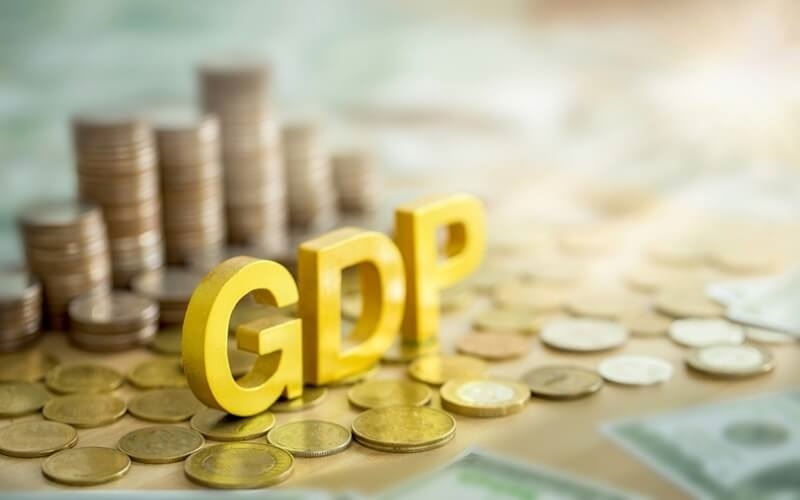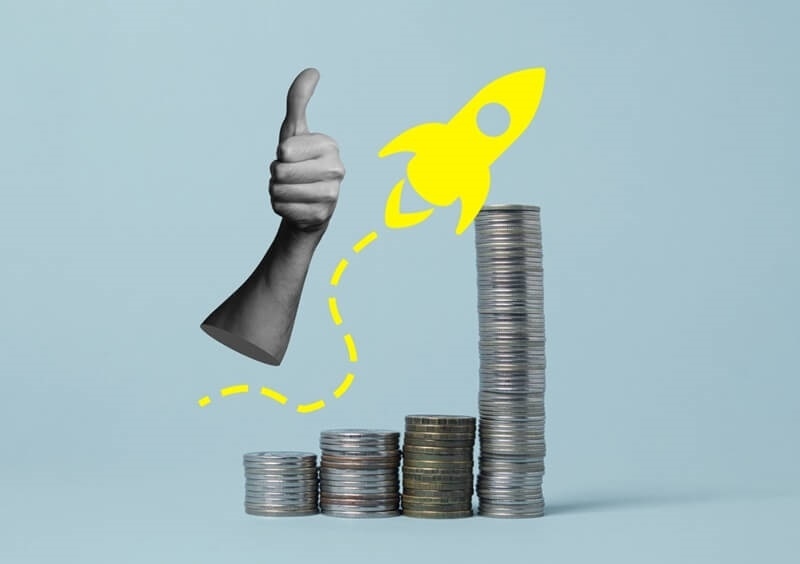
When the news mentions GDP, it is often interpreted as a kind of complicated economic jargon. However, in fact, it is directly related to your daily life, starting from your job to your savings. This guide presents GDP explained for beginners so that they can grasp what it really means, why it is important, and how it relates to their personal finances.
GDP is an abbreviation that stands for Gross Domestic Product. To be more specific, it considers the total value of all the products and services made in a particular country within a specific period, usually a year or a quarter. If the economy were a big pie, GDP would be the measure of the pie's size.
Every time cars are produced, a doctor treats a patient, or a waiter sells food in a restaurant, it is all added to GDP. We can better understand if the country is doing well or if it is going through hard times by checking out what GDP is and how it works.
Imagine that GDP is your family's annual earnings. With a raise in your income, you will be able to buy more, save more, and spend on new things. In the same way, the increase in GDP of a country is good news as it means that the economy has more money to increase the standard of living, produce more jobs, and improve the country.

The comprehension of GDP is a very close call to the economic growth basics. The economy is said to be growing when GDP goes up over a period of time. Growth of the GDP means businesses are increasing their production, people are spending more, and the number of jobs is going up.
If, however, GDP decreases, then the situation is quite the opposite. Consequently, companies may shrink, workers may be laid off, and spending in general will go down. This is the reason the word “recession” is used very often in the context of GDP, which, after a few consecutive months, tends to drop.
The most definite manner in which GDP is significant is the employment aspect. As GDP rises, businesses follow suit, and in order to better serve the increasing demand, they require more employees. As a result, hiring rises. Thus GDP has a direct effect on jobs.
Contrarily, when GDP weakens, enterprises may find themselves in a position where they are compelled to reduce costs. This may lead to the situation of lesser job opportunities or even layoffs. Many times if a company is said to be shrinking due to a bad economy, it is because the GDP growth has come to a standstill.
Economics frequently appears as a terrifying field of study, but by presenting it with the help of beginner-friendly economic terms, it becomes manageable. The following are some that are connected with GDP:
These first-step economic terms help to draw the connection between the news and your everyday life. For example, if inflation gets out of hand, the price of food in your house will go higher even if your income remains the same.
One question that comes to your mind might be: How can a country-wide figure be linked with me? The impact of GDP on personal finance, however, is quite considerable. Here are some of the ways:
When you take a close look at the impact of GDP on personal finance, you come to realize that it is not just about how rich the country is but also about how secure your own finances are in the long term.
The truth is that you do not have to be a flag bearer of every quarterly report for the purpose of caring for GDP. However, understanding the relationship between economic activity and your day-to-day life is a must.
A good GDP will reflect in the form of abundant job opportunities, higher wages, and solid investments. The opposite effects will be felt by you if you are unemployed, have to live on a very tight budget, and are unable to grow in your career.
Even though GDP is a significant indicator, it is impractical in some cases. It reflects the extent of the economy but does not embrace all the aspects related to the citizens' welfare. For instance:
Consequently, economists will still combine the GDP measure with others such as the Human Development Index (HDI) to get an image that is more inclusive; even then, GDP remains a vital metric in the overall assessment of the economy.
If you are a complete novice and GDP has just been explained to you, here are some practical ways to use this understanding in real-life situations:
That way, you are informed and can keep your finances secure.
GDP is probably one of the most challenging topics to grasp, but once you get some ideas of it using simple terms, you realize that it is everywhere in life. Almost everything is impacted by GDP: from the job market to the price of milk at your local supermarket, from your portfolio to the services provided by the state, GDP influences the environment where you live and work.
When you see the impact of GDP on personal finance, you realize why this crucial measure is worth considering.
This content was created by AI